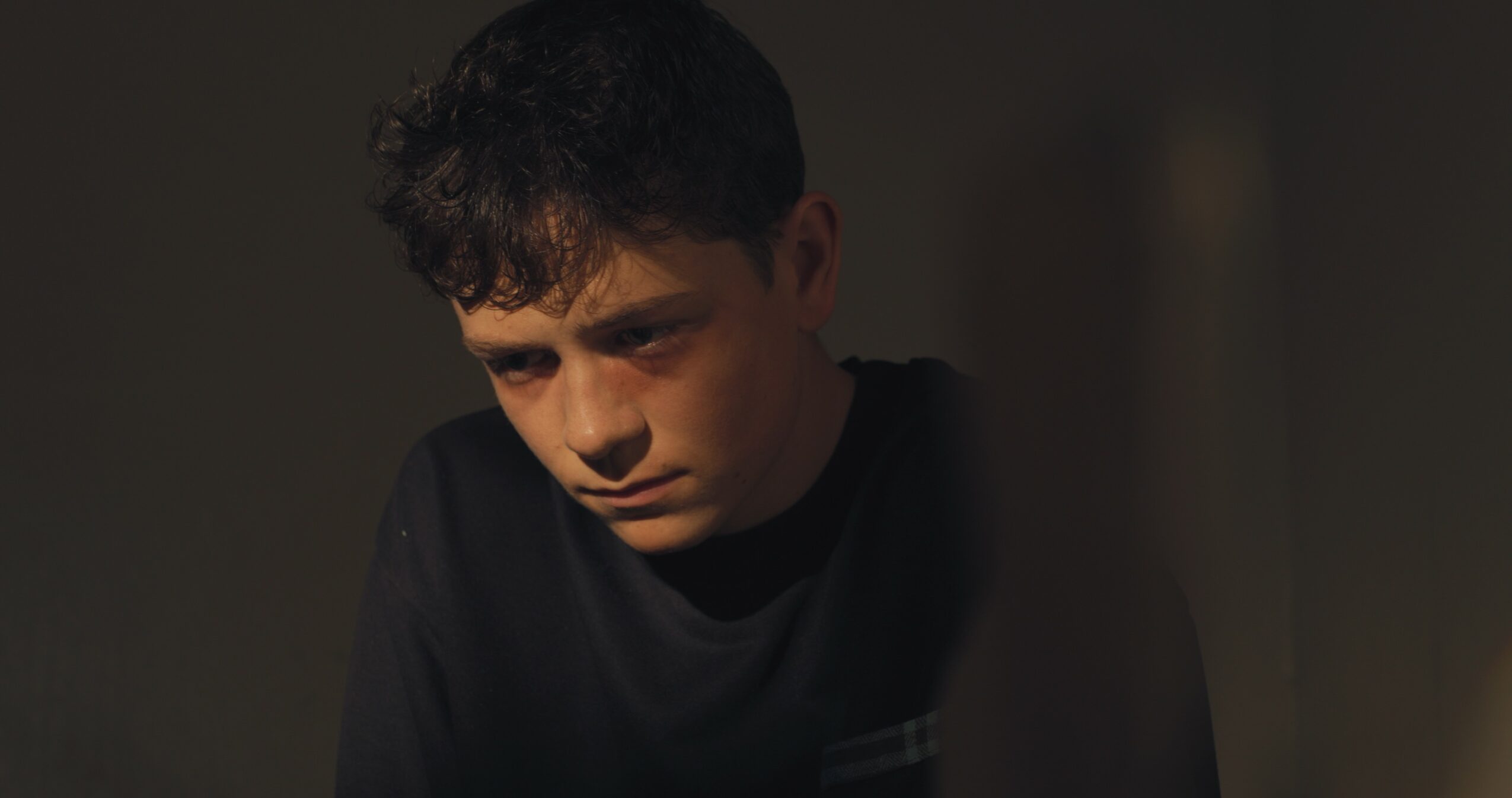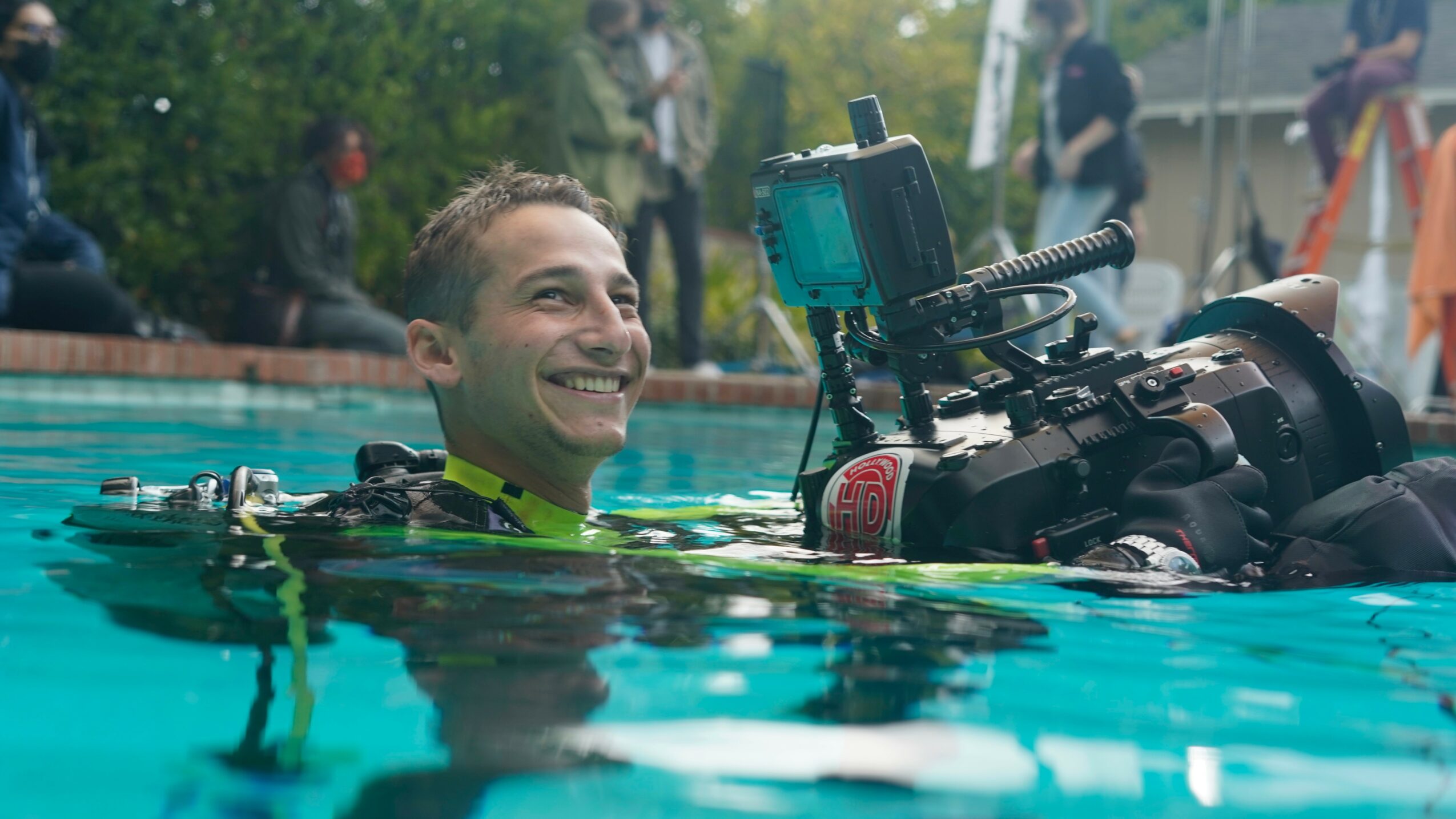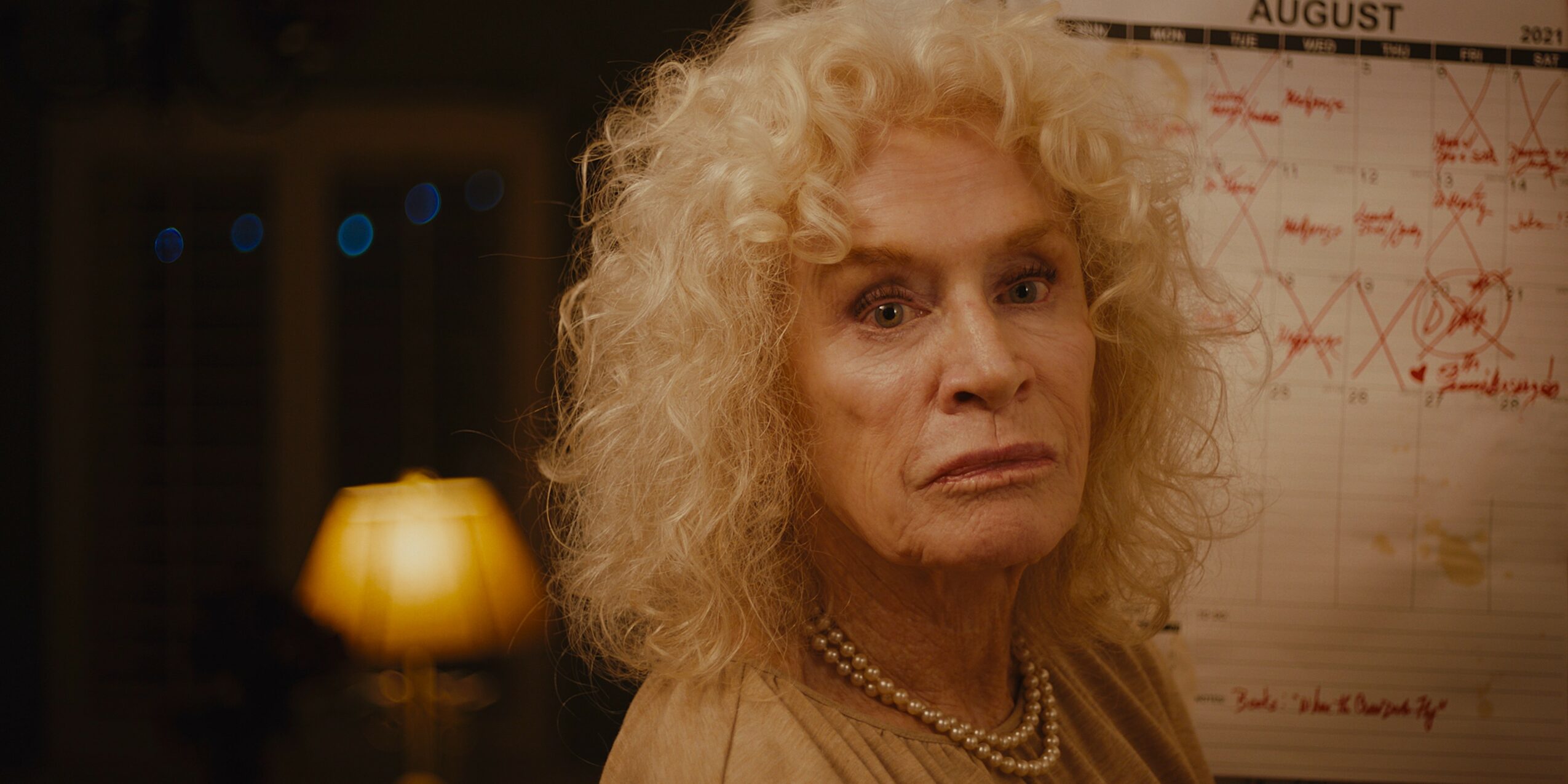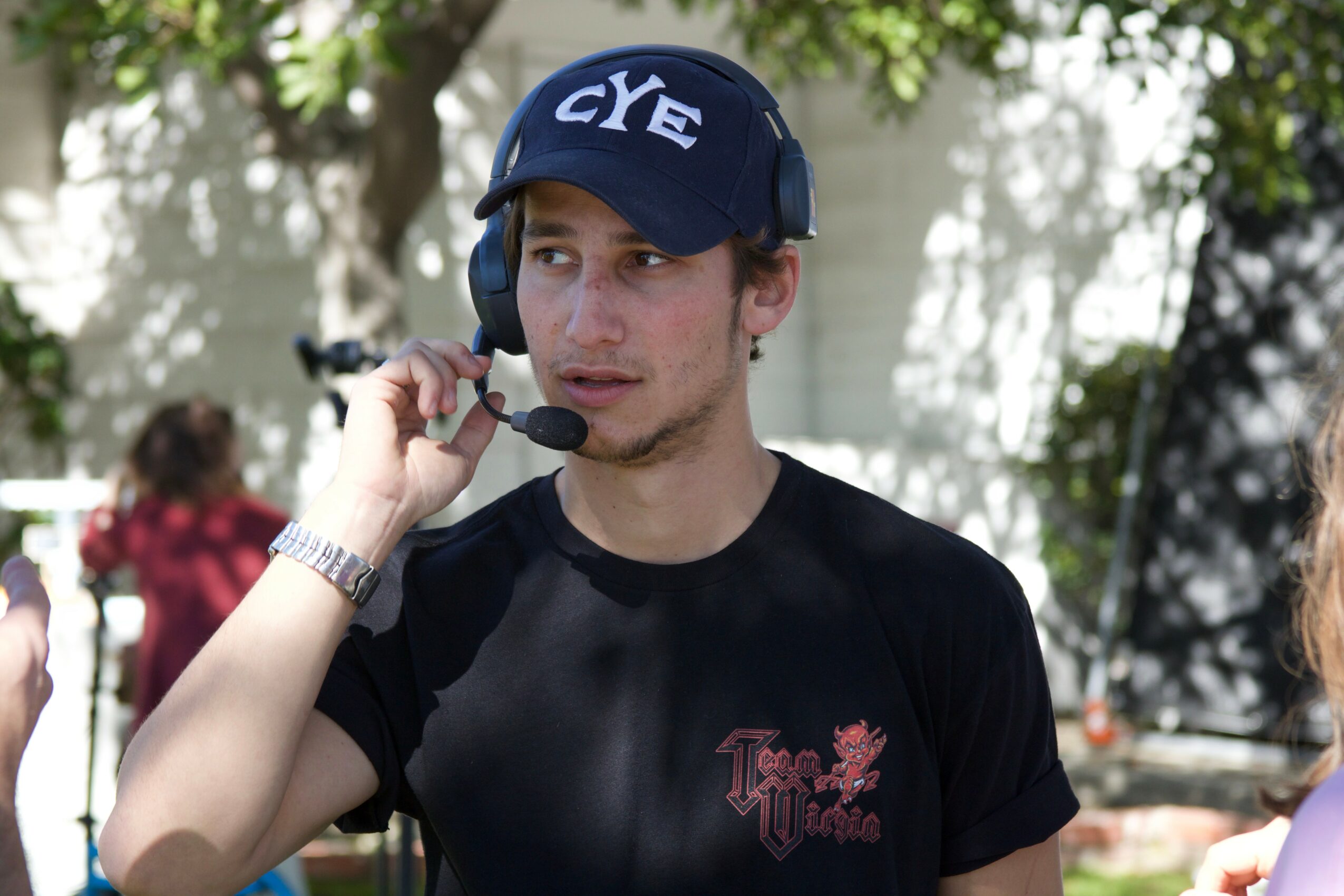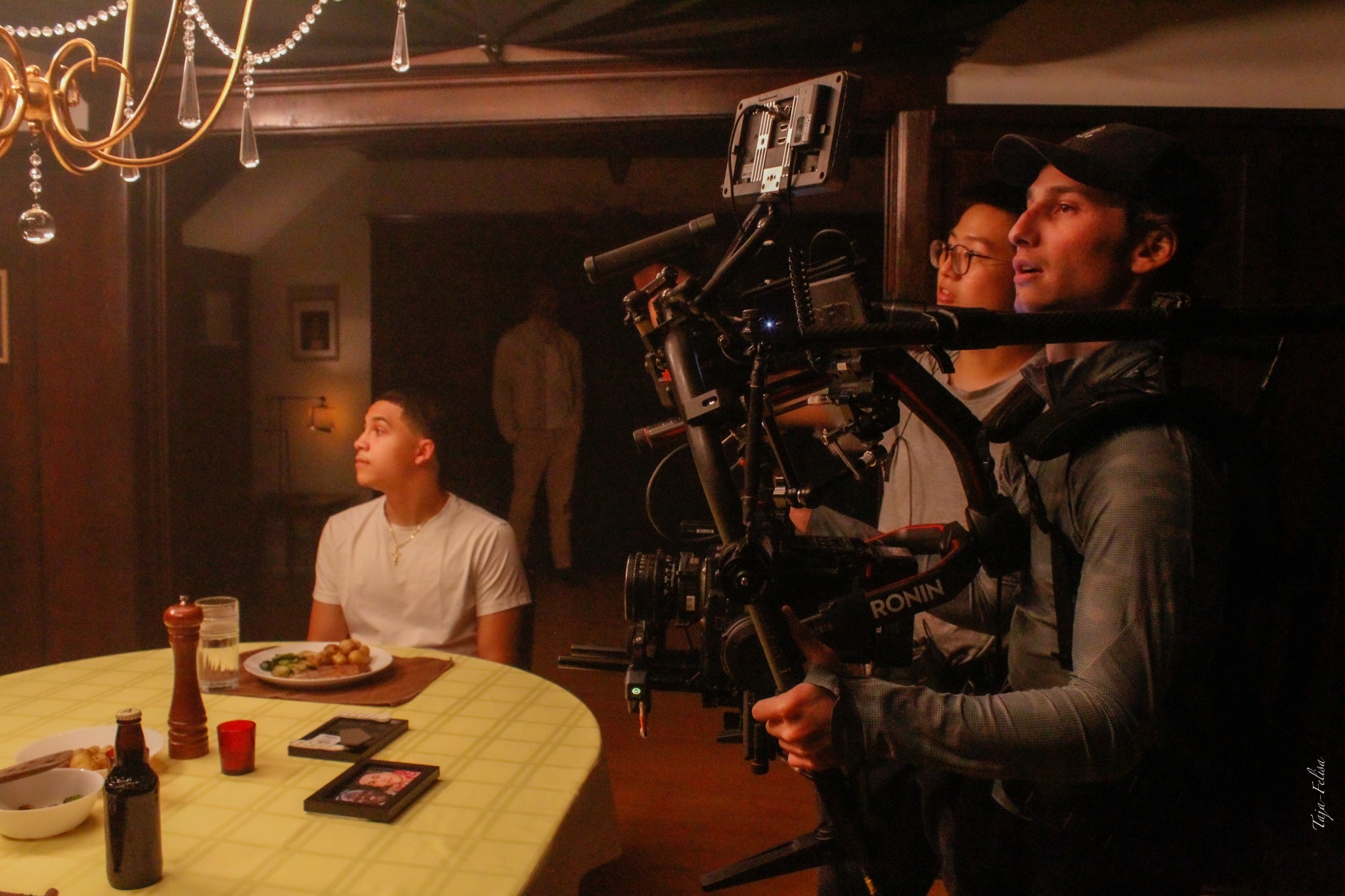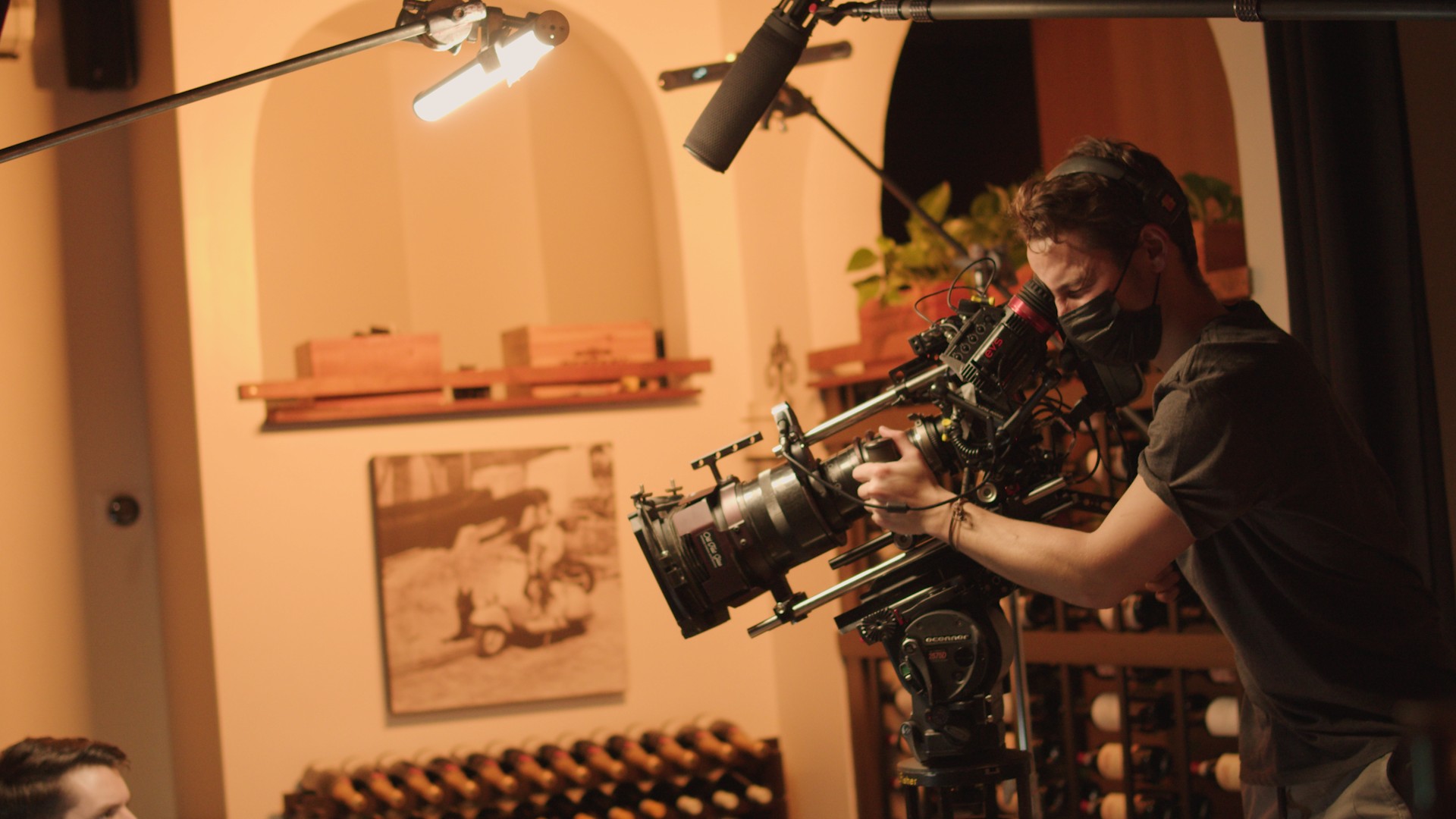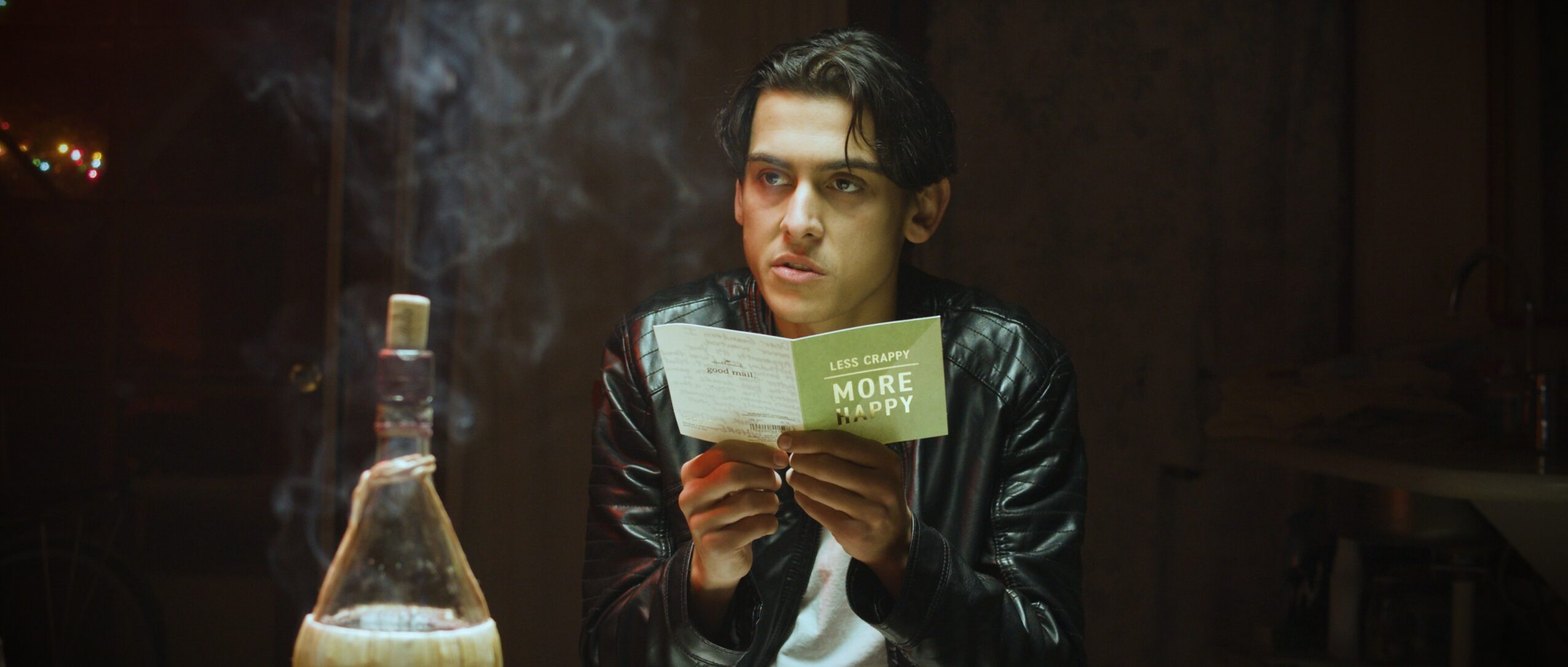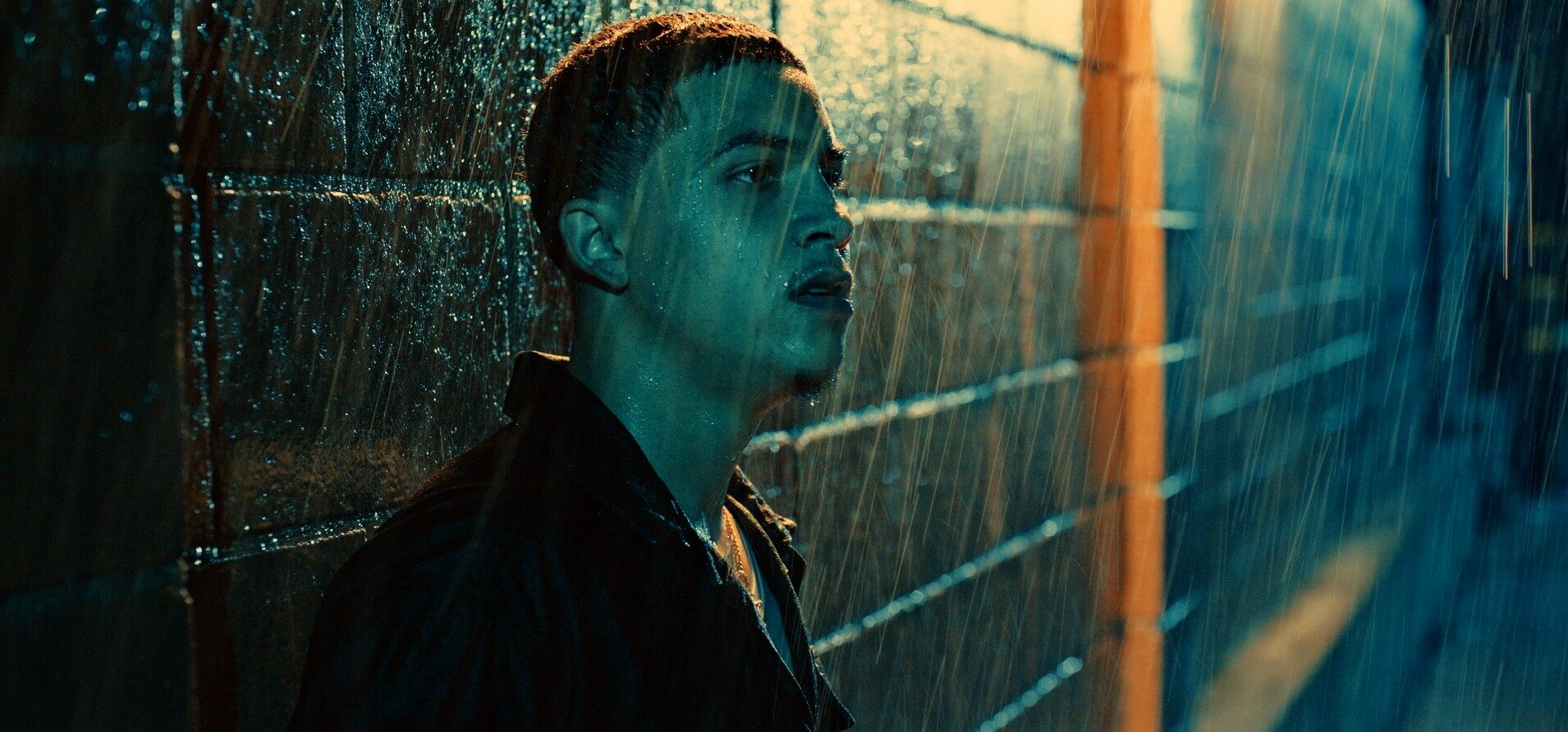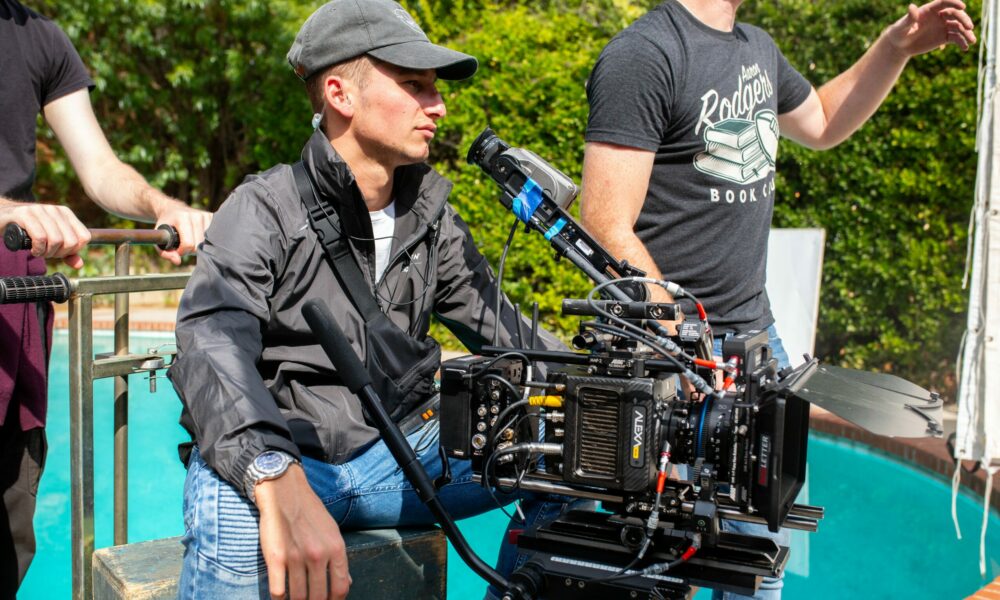

Today we’d like to introduce you to Joseph Wise.
Alright, so thank you so much for sharing your story and insight with our readers. To kick things off, can you tell us a bit about how you got started?
Growing up I sort of assumed that everybody knew what they wanted to do early on in their lives particularly because from the age of being able to almost read, I was making movies with my friends and my brothers. I was just enamored by films. My father, introduced me to motion pictures when I was a young kid maybe 4 or 5, with films like Terminator 2 and Saving Private Ryan (typically not the movies you’d want your little boy to see) But I was hooked from the beginning of time. And as I grew up, I guess I realized that it was a very unique situation because I really never knew myself to do anything else besides filmmaking. I was never really a good student… at all. I struggled to make friends because all I wanted to do when I made them was make movies with them. And athletics was never an area I succeeded in the way I had hoped to growing up. Filmmaking was my safe haven. It was the only place on earth where I made sense to myself, and more importantly, where the universe made sense to me.
I was born in London, England 1999 and filmmaking was always a hobby for me until I moved to Los Angeles, when I was ten years old with my family. I soon realized that in a place like Los Angeles, this didn’t have to be a hobby it could be my life’s work. I spent the first years of my LA film life acting, and was quite successful but, it never quite got me the way I saw it did the other kids. I then tried my hand at directing, but I mean really directing. Obviously I’ve been directing films with my friends for years and years, but when I turned 16, I teamed up with my high school production teacher at the time, so there could be an older face to the film. I knew nobody would listen to or trust a 16-year-old kid. We raised the money, we hired a crew and cast, and it was a great failure. No one besides my parents ever saw the movie. And no one besides them ever will. But I learned that this was a language that I was on my way to becoming a fluent speaker of. I then went on to direct a few more films “Autumn”, “As The Crow Flies”, “Moonshine” which were really successful taking home multiple awards such as Most Promising Filmmaker, and Best Dramatic Short at various film festivals around the world. But eventually, I was thrusted into what I now know was and has been my calling, all along. Cinematography.
See even as a Director, the films I was most successful with were actually silent. “As The Crow Flies” and “Moonshine” I think combined have less than a half page of dialogue. I always knew instinctually where to put the camera and why.
In my junior year at film school, (USC School of Cinematic Arts) we were asked to write and direct a short film. Being dead set on directing I called my DP who I worked with multiple times, to come and shoot the film. So we shot the film, it went great, the shots were beautiful. At the end of the day I went over to the hard drives to dump all the footage and as I did this, I “accidentally” deleted the entire drive. Completely formatted, nothing on the drive, nothing to recover. I was in tears and I pleaded with my professor to let me reshoot and finally after three weeks of emails and phone calls, he was willing to give me one day to reshoot the film. So when that day came I called my DP and I said this is the day we have are you ready to reshoot. My DP responded with “I can’t, It’s my sisters wedding.” This may be a moment I will forever hold as proof that a higher power exists. So I figured, “what the hell how hard is it to shoot a movie, I know where to put the camera”. And that was the start, that was when I realized that I’ve been chasing this all along and I just didn’t know it.
After this happened, I began to connect dots looking backward. You see, I was never the child to make stories up in my head, or pretend that my action figures were in a bad situation, and they had to get out of it… but I was the kid that stopped the car to take a picture of the way that light was hitting a tree or wall, or the way that a pink flower cut through a white background. I understood silhouette and shadow from a young age. I recently came across a lot of my drawings and paintings from when I was five and six, and it’s amazing to see the way I was thinking about shadow and movement even at such a young age. It made me cry. Tears because I felt sadness to not have seen for so long what the child in me truly wanted. But I was grateful to have found something that I know is a lifetime ahead of me at such a young age. I’m grateful to be working with all the people that I do now because I get to feel like I share this incredibly unique feeling of love for something with other people. Isn’t that the point to all of this?
I continue to DP full-time mainly in the narrative formats.
I recently wrapped a feature film starring Dennis Quaid and Jay Hernandez. A three-month shoot in both Austin, Texas and Bogotá, Colombia. I was lucky enough to shoot some 2nd Unit Cinematography and operate first unit cameras. I recently saw a cut and was blown away by how it all came together. I am currently working on another feature film, featuring Linda Hamilton and starring Sebastiano Pigazzi. A true story about Jack Mghun Al Capones right hand man in the 20’s of Chicago. And upon graduating from the School of Cinematic a
Arts at USC, I started a production company called 413 Productions alongside three of my best friends in the world, who share the love of filmmaking with me. And I cannot wait to continue learning the language a visual storytelling.
I’m sure you wouldn’t say it’s been obstacle free, but so far would you say the journey have been a fairly smooth road?
For me, the failures have always been the lowest of lows. I think if you were really meant to do something, then when you fail at it, (which inevitability must be radically accepted) it should get you. It should absolutely destroy you. But obviously, everyone knows that failure is what’s leading us to success all the time. It’s actually harder to learn from success and easier to learn from failure. I was 16 years old when I made my first real short film. There was a budget, a cast, there was a crew, a DP. The day’s had a scheduled structure, and I worked on this film for maybe about 18 months. When I showed it to my parents, I was hoping they wouldn’t see what I saw… but they did. The film was an absolute failure. The story I was trying to tell did not come across, and I was absolutely destroyed. It didn’t matter to me that it was my first film and that I was 16. For me, I had always wanted to make other people feel the way that certain films had made me feel. Full stop. I wanted to join in on the language that these people were speaking. The cinematic language. But like I said looking back, I think it was good that I was destroyed. I think it was the universe’s way of saying to me “Hey this is something you really want to do? You’re gonna have to work really hard at it.” The level of destruction that it will bring you should only show you how badly you want it. No matter how much I learn and get better, there is always more room for perfection. there is always more room to be better. Like, McConaughey said in his Academy Award Acceptance Speech “I’m never gonna be my hero. I’m never gonna obtain that and I know I’m not and that’s just fine because it keeps me with something to keep on chasing.”
As you know, we’re big fans of you and your work. For our readers who might not be as familiar what can you tell them about what you do?
I serve as DP (Director of Photography) which is a lot of fun because unless you were in the film industry, you would have no idea what that is. My job entails visually telling the story alongside the Director and the other collaborators such as the Production Designer and sometimes Visual Effects Artists. I’ll sit down with the Director and we’ll go over the look of the film, the mood, the way we want it to feel, the world we want to create and the rules we want to bend, the rules we don’t wanna break. I do hours and hours sometimes days and weeks of research on the cameras and lenses, the lights and the gear that I think is going to best fit our film both visually, technically, and in the flow of production. Being a Director of Photography is an incredibly creative job but it’s also one of the few jobs where 49% of it is incredibly technical. I don’t come from a technical background. Like I said I was never a good student. Math, Chemistry, English always tested rock bottom for me. I think I had a combined PSAT score of 16%. And if they taught the physics of lighting in school, I probably wouldn’t have gotten that either. Or maybe I would’ve. But I think what sets me apart is that I never want to have a technical style. The film is what must dictate the style.
The film is like a child and we, (Director and I) should be like parents raising the child, letting it tell us who they need to be whilst guiding it in the right direction. Of course, I have things that I like to do and methods that I prefer, but at the end of the day the greatest compliment I’ve ever received was when I asked a friend “What did you think of this film I shot?” She said, “You know I didn’t really pay attention to the cinematography, I’ll have to go back and rewatch it.” This is the dream for every project going forward. The cinematography must remain a silent and invisible part of the story. It must support the story, and so bringing your own style to it seems selfish. Sometimes the prettiest images are not the best. A great cinematographer once said “there’s good cinematography, there’s bad cinematography, and then there’s the right cinematography.” If I can be the bridge between an audience’s subconscious and the movie itself, I will be at peace.
Are there any apps, books, podcasts, blogs or other resources you think our readers should check out?
I love to listen to the Roger Deakins podcast. Roger is regarded as one of the masters of cinematography and my personal hero/role model, not only because he is such a story driven DP, but because the person he is reminds me everyday to have humility and gratitude for the fact that I have a chance to chase the voice inside my head. He and his wife have been working together for nearly 4 decades and have a podcast where they interview other filmmakers from directors to actors to cinematographers to camera operators to special effects artists etc. Hearing all the different stories, especially those of the cinematographers and how they got to the places they have, gives me peace knowing that everyone has their own unique path upward, and I shouldn’t try and change mine, but embrace it. It gives me the confidence to stay in the present
Contact Info:
- Website: Josephwisedp.com
- Instagram: @Josephwisedp
